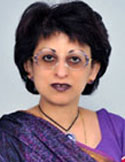
By Bhaswati Mukherjee
Jul 10, 2015
With the IS claiming responsibility for the massacre in the Tunisian sea-side resort on June 26, and making steady advances into Syrian territory after declaring their intention to establish an Islamic Caliphate, the alarming prospect of Weapons of Mass Destructions (WMDs), including chemical weapons falling into their hands, could become a reality. There exists an effective disarmament instrument in the Chemical Weapons Convention (CWC), which contains an absolute prohibition on the use of chemical weapons. These weapons have sometimes been defined as the poor man’s nuclear weapon.
This issue has re-emerged in recent months with media reports about the alleged use of toxic chemicals in several barrel bomb attacks in the Idlib province in Syria between March 16 and 31. The scenario becomes more complex because Idlib has fallen to rebel forces. The chlorine smell reported by rescue workers and doctors, a local journalist’s report of a yellow gas leaking from a refrigerant canister after an attack, and the previous use of chlorine in the Syrian conflict suggest that this chemical may have been used.
On March 6, the UN Security Council adopted Resolution 2209, in which it expressed concern that toxic chemicals had been used as weapons in Syria and decided that in the event of non-compliance, it would impose measures under Chapter VII of the UN Charter. The UNSC is reflecting on measures to stop the use of toxic chemicals as a method of warfare, through the UN chemical weapons watchdog, the Organisation for the Prevention of Chemical Weapons (OPCW). At present the UNSC is discussing a draft resolution that would create a panel, reporting to the secretary general to determine which of the warring parties is responsible for using chlorine. Given the complexities of fixing responsibility on any party, it seems unlikely that any consensus would emerge from these consultations in the near future.
With the IS encroaching deep into Syria and setting up governance mechanisms, the possibility of the IS using such chemical weapons in the future cannot be ruled out. Syria’s stockpiles have been destroyed under the OPCW/UN supervision. If there are no more Syrian stockpiles, the issue remains: Are there other stockpiles? Who is supplying these chemical weapons to rebel forces in Syria? Can these weapons fall into the hands of the IS? Does the IS already have access to such WMDs?
There is speculation that chemical weapons stockpiles of former Libyan President Muammar Gaddafi had fallen into rebel hands during the Libya crisis and could make their way into trouble spots all over the world. Even the Libyan regime, or what remains of it, acknowledges that though they had subsequently declared these stockpiles as ‘new discoveries’ of Gaddafi’s undeclared stockpiles, they were not completely destroyed.
We now have a situation where Libya is unravelling and could become a failed state and the IS is making substantive inroads into Syrian territory. Thus, this troubling prospect of the poor man’s nuclear weapons remains a daunting challenge, which one hopes the international community or we in India never need to address. Vigilance should, however, be our catch-word in the context of our own troubled neighbourhood.
Bhaswati Mukherjee, a former ambassador, is the permanent representative of India to the OPCW. The views expressed are personal.
Source: http://www.hindustantimes.com/analysis/is-and-the-poor-man-s-nuclear-weapon/article1-1367605.aspx

No comments:
Post a Comment